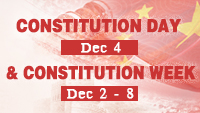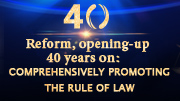Consumption tax increased on luxurious cars to guide reasonable consumption
The Ministry of Finance and State Administration of Taxation imposed a ten percent consumption tax on luxury cars on Nov 30, which in some experts opinion will affect consumption.
According to available statistics, from Dec 1, for a car of more than 1.3 million yuan ($186835) with larger than a 4-liter displacement, the tax rate will reach 50 percent -- 40 percent imposed in production part and 10 percent at the retail level.
Liu Rui, economic professor from Renmin University of China, said that this move will influence consumers with annual incomes between one million and five million yuan ($718597), but for the majority of luxury car consumers, the actual influence will be quite limited.
The consumption tax increase is meant to provide guidance on reasonable consumption given the goals of energy conservation and emission reduction. In the future, consumption tax will be based on pollution, consumption and energy consumption fields, according to Liu.
It’s worth noting that this time the increased consumption tax is imposed at the retail level instead of in the production process.
Some consumers are concerned about that this move may bring about a chain of reactions. Consumption tax increases may require reallocation of increased tax between factory, distributor and consumer.
Chen Daofu, chief of the Development Research Center of the State Council, indicated that a retail consumption tax won’t necessarily be paid by consumers, but might be shared by the manufacturing enterprise, retailer and consumer.
Zheng Chaoyu, economic professor from Renmin University of China, said that in the future, even though consumption tax will be levied at the retail level, the tax rate of the auto industry, a pillar of the national economy, will be lowered within a certain range. So, there is no need to worry about the influence of increased taxes on sale prices.



